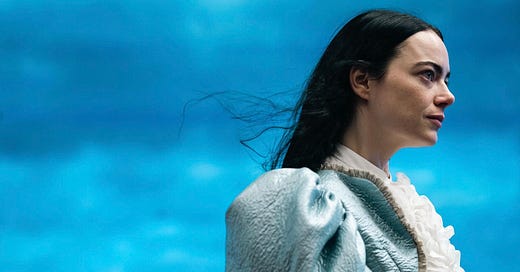Ignore nationalist naysayers, Poor Things is a triumph for Scotland
Those who cavil and complain are missing the bigger picture
Does it matter that Poor Things, a new film garlanded with critical praise and heading for Oscar glory, is not set in Glasgow? For some Scots, yes, it seems it really does.
The film is based on a 1992 novel by Alasdair Gray, a hero not only of the Scottish literary renaissance of the 198…
Keep reading with a 7-day free trial
Subscribe to The Jaggy Thistle to keep reading this post and get 7 days of free access to the full post archives.





